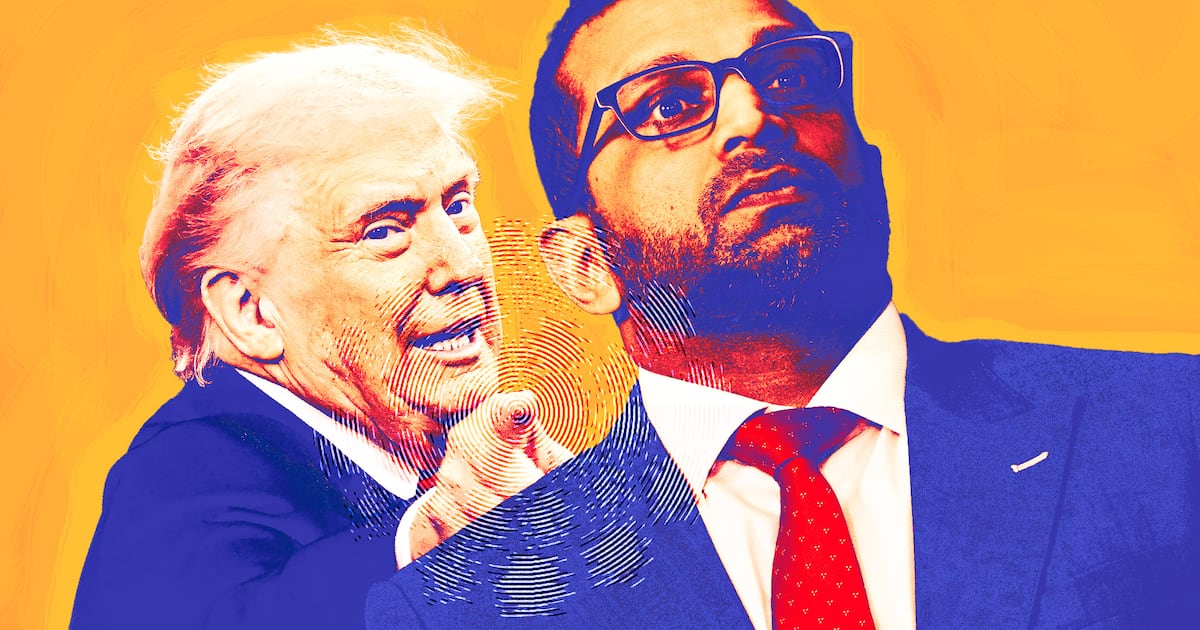In search of something to reverse its declining fortunes in the early ’90s, the city of Bridgeport, Connecticut, looked 80 miles east. There, the Foxwoods casino was, even in its infancy, proving to be a boon for the tiny town of Mashantucket and the Native American tribe that ran it. Bridgeport hoped that another giant casino, this one on its own waterfront, could anchor a revitalized downtown and drive the city’s economic comeback.
But the city didn’t expect a bitter land dispute between two real-estate magnates that would end with the town’s mayor—a man who would later spend seven years in prison on corruption charges—making a deal with one of the magnates to forgive him $300,000 per year in back property taxes.
That magnate was Donald Trump.
In the summer of 1994, Trump had joined with Bridgeport’s then-mayor Joe Ganim to announce the Trump Park City Plaza. The waterfront project was to contain an amusement park, retail and residential space, and a shipping terminal.
At a joint press conference with Ganim that June, Trump touted the 2,000 part-time and 500 full-time jobs the complex would create. The term “world class” was tossed around with abandon.
Notably, Trump also told the assembled media that he had no plans to build a casino on the site. Which was true, so long as no one else did either.
Bridgeport in the mid-1990s had fallen on the same hard times that had decimated so many other American cities. De-industrialization had driven many of the area’s factories out of business, resulting in the loss of thousands of jobs. Its urban core hollowed out, the city’s infrastructure was crumbling and blight was fast taking over—Detroit on the Pequonnock. Neglected and decrepit buildings littered the waterfront of New England’s fifth-largest city like the ruins of a lost civilization. Bridgeport tried to declare bankruptcy in 1991, though a federal judge found it solvent—barely—and denied the attempt.
But in March of 1995, after Trump’s announcement, Bridgeport’s voters approved a referendum to allow a casino to be built on the waterfront. Soon enough the city had three competing bids for the project: Trump, the Mashantucket Pequot tribe that ran Foxwoods, and Mirage Resorts, owned by billionaire Steve Wynn, Trump’s bitter rival.
One formidable obstacle to the Bridgeport casino was Connecticut state law, which restricted the operation of any casino to Native American tribes, and only in the community where that tribe has been federally recognized.
If Bridgeport was going to realize its dream, it would first need Connecticut’s legislature to rewrite the law to either allow a Native tribe to run casino operations in other communities, or for non-Natives like Trump and Wynn to build and run casinos in the state. The state’s governor, John Rowland, favored the Pequots’s proposal, but Wynn was still in the mix.
Lennie Grimaldi, who managed all four of Ganim’s re-election campaigns in the 1990s and also worked for Trump as the billionaire’s public-relations representative during the casino’s development, elaborated on what happened next.
“Trump’s attitude was, ‘If they give me the casino I’ll take it. If it’s not mine I wanna kill it.’ That’s what he told me from day one,” Grimaldi told The Daily Beast in an email.
“Wynn had been working the system pretty good before Donald got involved. So as the process moved on, and Donald viewed the casino bill as vulnerable, his lobbyists and lawyers did what they could to torpedo it.”
“Trump at the time had a venomous attitude toward [Wynn], so business being business from Donald’s perspective, if he could blowtorch a Wynn deal, he saw it as an entrepreneurial orgasm.”
Between Trump’s lobbying and the objections of the wealthy counties surrounding Bridgeport—whose residents feared all the traffic, crowds, and social problems that can come with big-money gambling—the casino bill died in the state legislature.
In the 20 years since, only one other casino has opened in Connecticut—the Mohegan Sun Resort and Casino, which is run by the Mohegan tribe and located near Foxwoods, 72 miles away from Bridgeport.
Having successfully kept his rival from landing the lucrative casino contract, Trump still found himself with one albatross around his world-class neck. As part of his maneuverings, he had purchased a five-acre parcel of waterfront land to serve as the site of his own proposed casino. The land was home to an old Jenkins Valve factory that had long since closed.
But Trump was still on the hook for $300,000 a year in property taxes, according to journalist Rob Sullivan’s 2014 book Political Corruption in Bridgeport: Scandal in the Park City.
“The assessment on this property is crazy. I’ve never seen anything like it,” he said, according to Grimaldi’s book.
Trump complained loudly to Ganim, who hit on a solution. With the casino dead, the mayor wanted the land in order to build a minor-league baseball park.
He made a deal with Trump: The mogul would sell the land to the city for $1, plus forgiveness of all the back taxes he owed. The city could build its ballpark, and later, a multipurpose arena that today hosts a minor-league hockey team, concerts, and other events.
Both buildings draw thousands to downtown Bridgeport every year, although they are perhaps not the economic boost that a casino could have been.
The casino fiasco had one other major effect on Bridgeport: After the agreement, Ganim began using bribes and kickbacks to his office to sell city contracts.
Aided by Grimaldi and fellow mayoral aide Paul Pinto, Ganim collected hundreds of thousands of dollars in profits between 1995 and 2001 before being arrested by the FBI and prosecuted on 24 counts of racketeering, conspiracy, and bribery.
After Grimaldi and Pinto testified against him, Ganim was convicted on 16 of the counts and served seven years in federal prison. Although prosecutors made much of his relationship with Trump, according to reporting during Ganim’s trial from both the Hartford Courant and The New York Times, the real-estate mogul was never accused of any wrongdoing.
After being released from prison, Ganim returned to Bridgeport. Claiming to have learned from his mistakes, he is now running for the Democratic nomination for mayor in a bid for a sixth term.
Although sitting Mayor Bill Finch recently earned the endorsement of the city’s Democratic Town Committee in a close vote, Ganim has collected enough voter signatures to earn himself a spot on the primary ballot September 16.
Polls show the race is tight.
Meanwhile, Trump remains the populist favorite for the Republican nomination for president.






